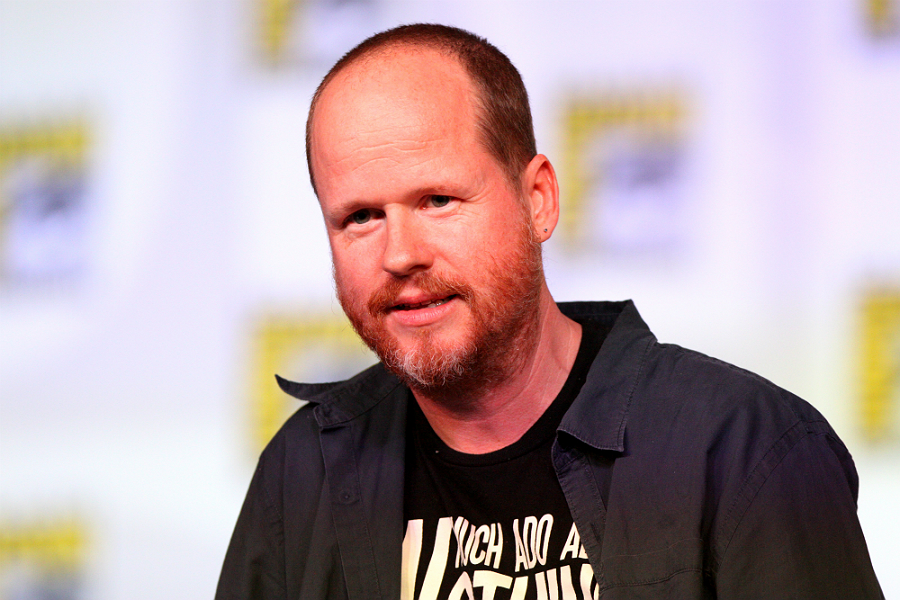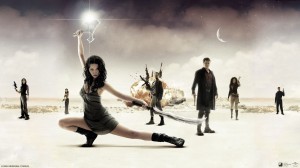In Profile: Joss Whedon

Previously best known for creating TV cult favourites such as Buffy the Vampire Slayer, Joss Whedon is a director at the top of Hollywood’s speed-dial list…
They say the geeks shall inherit the Earth. If the plural of that hasn’t quite come to pass, then in the case of writer/director Joss Whedon, surely the singular has.
Reading like a must-see list of cult TV his credits include Buffy the Vampire Slayer, its spin-off Angel, the space opera-cum western Firefly and the ultimate Stepford Wives dystopian nightmare, Dollhouse.
But far from leading to a career spent in the Sci-Fi ghetto and ending up in bargain bins, Whedon it seems – perhaps by a combination of luck and judgment – has managed to dodge that particular bullet, even if, at times there has been a tendency in some quarters to overrate his work.
So successfully has he navigated those waters that he has found himself in the enviable position of having his cake and eating it; witness last year’s po-mo horror thriller success, The Cabin in the Woods, a picture that turned genre convention on its head to do great business while steering well clear of critical derision.
2012 also saw him write and direct The Avengers, Marvel’s franchise ensemble movie. Another critical hit, the film’s performance at the box office was remarkable, becoming the fastest film to gross $1 billion on its way to becoming the third-highest-grossing film ever.
It is testament to his confidence and ambition as a filmmaker that Whedon even found time to squeeze in 12 weeks shooting (in his own apartment to boot) his California-set version of Shakespeare comedy, Much Ado About Nothing.

A year or two previously though and his domain would, by-and-large, still be considered the small screen, where he had established himself as the firm favourite of thinking person’s genre TV. Even then Whedon had encountered more than his fair share of pitfalls, accruing some damaging cancellations along the way, or hurriedly forced to wrap up a series ahead of time (Firefly being a notable example here, a problem Whedon circumvented with the release of the feature, Serenity).
But speaking to the Guardian earlier this month, he joked “I kept telling my mom that reading comic books would pay off”. And pay off it did, but where did it all go right for this self-professed fanboy? When you sit down and look at the facts rather than the headlines, it becomes less a mystery than it does a probability.
For starters, it is thanks in no small part to the likes of Buffy that his own particular type of pop culture creation has gravitated closer to the mainstream; the zenith – or nadir depending on your point of view – of this phenomenon, whether he’d like the observation or not, being the Twilight movies, as well as Alan Ball’s True Blood.
The stuff that used to be considered B-movie fair (at best), has been proved to sell big. Need to pep up that tester ahead of the focus group? Stick a vampire, preferably a hot one, into the mix.
It’s not all a matter of serendipity and a rise in the popularity of dark fantasy and sassy female leads though; there is a definite sense that Whedon has paid his dues, having picked up writing credits on both Pixar’s Toy Story (1995) and Alien: Resurrection. So contrary to appearances, this is hardly a guy in the flush of overnight success.
By accident or design, however it has come about, his move to Hollywood’s top table is of particular satisfaction to those of us who like just a touch of intelligence and wit added to their typical summer blockbuster mix, and it seems in Whedon, that is just what we’ve been given.
Whedon’s success is a sign that, for once, the decision makers can pick and stick with a winner on the basis of good, funny and heartfelt writing. And if that means a stereotype-challenging ethos is bundled into the bargain, all the better.
Much Ado About Nothing is in cinemas now





